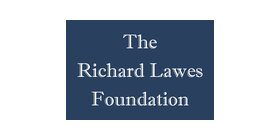Report Synopsis
UK Agronomy: What can we learn from overseas to better curate the use of pesticides?
The use of plant protection products or pesticides has become an established part of the management of arable crops. The complexity of the pesticide market stimulated the birth of a trade, practitioners of which have become known as agronomists. Agronomists exercise a great deal of influence over pesticide use in the UK. The out-sourcing of pesticide management to agronomists has contributed to a disengagement of farmers from their own agronomic decision making. This disengagement appears greater than that which I observed in other countries for a number of reasons including the diversified nature of UK farm businesses, the opacity of our pesticide market and the compulsion by assurance schemes that farmers engage qualified advisors.
Systems in which UK agronomists operate, as sub-contracted pesticide managers, lack established lines of accountability. This applies both to agronomists who sell products and those who work independently. I believe this system of working encourages the use of pesticides at levels above the economic optimum for growers and takes too little account of the long-term stewardship of pesticides. The data collected on pesticide use are insufficient to determine how appropriately these products are being used at a landscape level, but studies conducted in France conclude that significant reductions in use could be made on most farms without reducing productivity.
None of the countries which I visited employ systems which address all of these issues, but I observed examples of mechanisms of accountability which could offer improvements to the UK. Incentivising agronomists by measurements of productivity in South America and the evolution of pesticide use metrics in Denmark were two such examples. Other useful examples have been drawn from the efforts to better steward antibiotics in medicine and agriculture.
The genetic development of crops offers the potential to reduce our reliance on pesticides and extend the sustainability of crop production systems. UK and European legislators should take this into account.
The following interventions to UK Agronomy should result in better long-term stewardship of pesticides, their more cost-effective use and a reduction in their diffuse, unintended effects:
- Launch a new concept in agronomy and crop input supply where agronomists become financially accountable to our decision-making, using crop gross margins as success criteria.
- Introduce Treatment Frequency Index (TFI) as the measure of pesticide use and make it one of the reporting requirements for the Integrated Pest Management Plan.
- Borrow the livestock industry’s approach to antibiotic management by creating a task force for the Responsible Use of Pesticides in Agriculture. Agree targets based on voluntary, selfreported pesticide reduction, measured by three-year rolling averages of TFI.
- A drive towards a system support, rather than product support model of agronomy. This should be facilitated by a re-doubling of the AHDB’s focus on peer to peer knowledge exchange through bench marking groups and monitor farms. External resources and expertise should be sought to develop this project into a self-sustaining movement which can meet the challenges of descending “Peak Pesticide”.
Mark Dewes

The Richard Lawes Foundation

Similar Reports
- 2023
Regenerative farming practices and their impact on the soil health
Marcin Markowicz - 2023
From Challenges to Potential: The Evolution of Hokkaido’s Viticulture: Crafting a Sustainable Future for Japan’s Northern Vineyards
Rikiya Ueno - 2023
A Global perspective of how Maximum Residue Limits (MRLs) affect the Australian grain price and access to international markets
Tessa Dimond - 2023
Exploring winegrape varieties from the eastern Mediterranean for South Australia
Alexander Copper
